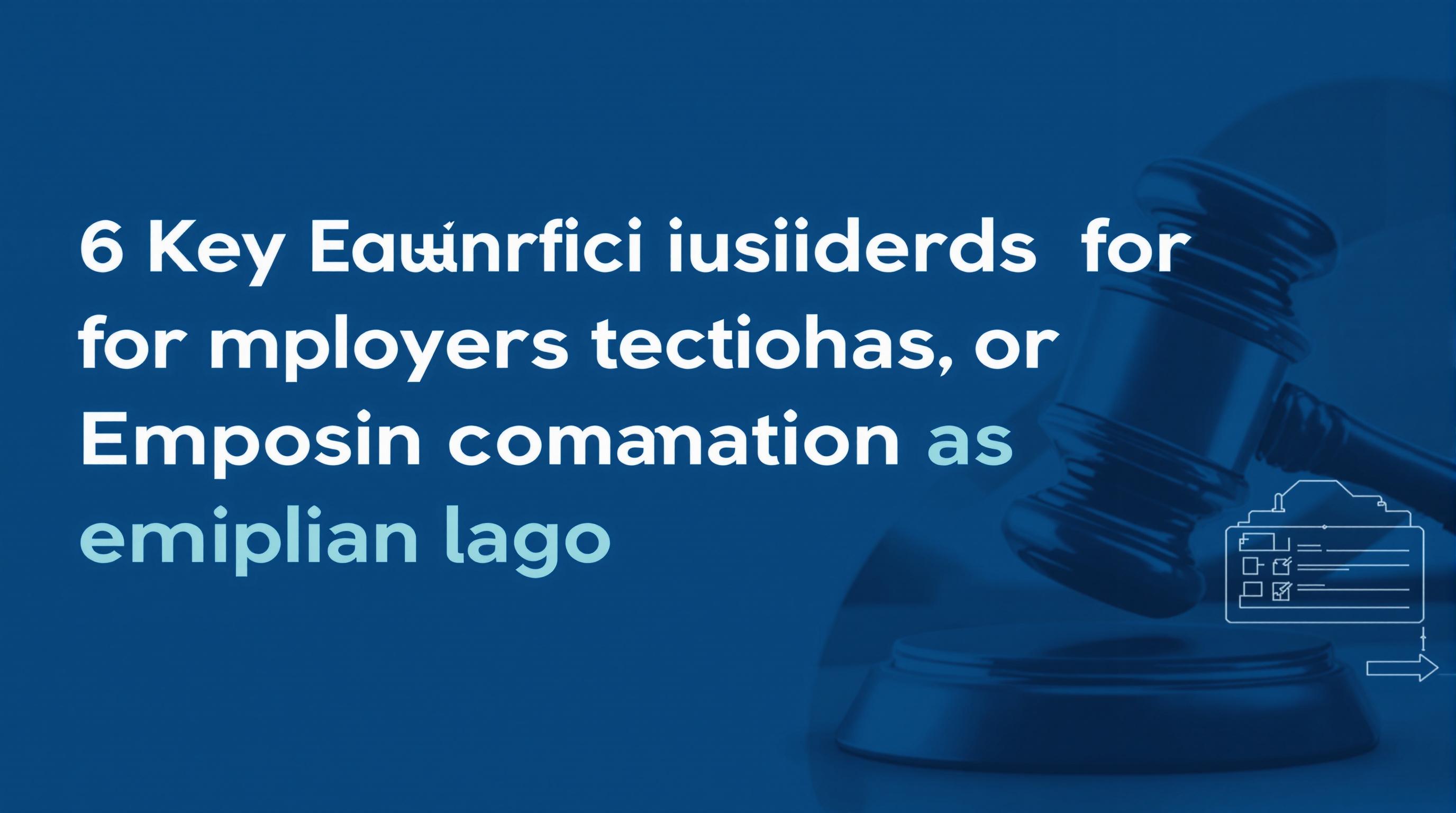Related Articles
- Top 6 AI-Powered Underwriting Platforms from the Past 5 Years Disrupting Traditional Risk Models in 2024
- How Uncommon Insurance Amendments Influence Unexpected Claims and Shape Policyholder Behavior in Quiet Corners
- 7 Underrated Indexed Insurance Products from the Last 5 Years That Outsmart Traditional Plans
- Unveiling the Role of Universal Life Insurance in Protecting Digital Legacies and Cryptocurrency Estates
- Top 6 Under-the-Radar Group Insurance Plans Since 2019 Redefining Employer and Employee Value
- How Childhood Genetics Influence Insurance Premiums and What Parents Rarely Know About Policy Risks
6 Key Legal Considerations for Employers Choosing Group Insurance Plans to Ensure Compliance and Risk Mitigation in 2024
6 Key Legal Considerations for Employers Choosing Group Insurance Plans to Ensure Compliance and Risk Mitigation in 2024
6 Key Legal Considerations for Employers Choosing Group Insurance Plans to Ensure Compliance and Risk Mitigation in 2024
1. Understanding Federal Regulations
Employers must first familiarize themselves with federal regulations governing group insurance plans, including the Employee Retirement Income Security Act (ERISA). ERISA sets standards to protect employee benefits and requires employers to provide plan information transparently.
Additionally, compliance with the Affordable Care Act (ACA) is crucial. The ACA mandates minimum coverage standards and reporting obligations for applicable large employers to ensure employees receive adequate health benefits.
Failure to comply with these laws can lead to significant penalties and legal challenges. Staying updated on amendments and guidance from agencies like the Department of Labor (DOL) can help employers avoid these risks.
2. State Insurance Laws and Variations
Aside from federal requirements, employers must also navigate varying state laws that impact group insurance plans. States may have unique mandates regarding coverage scope, premium rates, or waiting periods that differ from federal standards.
Understanding these differences is essential, especially for companies operating in multiple states. Non-compliance can result in fines or the invalidation of certain policy aspects.
Employers should consult state insurance departments or legal counsel to verify requirements and ensure that their plan terms align with local laws, thus reducing compliance gaps.
3. Employee Eligibility and Enrollment Procedures
Clearly defining employee eligibility requirements is a vital legal consideration when selecting a group insurance plan. This includes specifying which job classifications, hours worked, or employment duration qualify for coverage.
Enrollment procedures must comply with regulations relating to timely notification and open enrollment periods. The ACA mandates strict enforcement of these rules to prevent discriminatory practices.
Employers should maintain thorough documentation of eligibility criteria and communications with employees to defend against potential disputes and audits.
4. Privacy and Data Security Compliance
Group insurance plans involve handling sensitive personal health information, making privacy and data security paramount. Employers must comply with the Health Insurance Portability and Accountability Act (HIPAA) regulations.
Implementing robust safeguards around data collection, storage, and sharing minimizes the risk of breaches that can lead to legal action and reputational damage.
Regular training for HR and benefits personnel, along with clear privacy policies communicated to employees, supports compliance and fosters trust.
5. ACA Reporting and Disclosure Obligations
Under the ACA, employers meeting certain size thresholds must file IRS Forms 1094-C and 1095-C annually to report the health coverage offered to full-time employees. These disclosures are essential for maintaining ACA compliance.
Failure to submit accurate reports may result in penalties and complicate employee tax filings. Proper coordination between benefits administrators and payroll teams ensures data accuracy.
Employers should also provide employees with relevant statements and notices such as the Summary of Benefits and Coverage (SBC), which clearly explains plan options and costs.
6. Addressing Discrimination and Plan Accessibility
The design of group insurance plans must not discriminate against employees based on age, disability, gender, or other protected characteristics. This is mandated by laws including the Age Discrimination in Employment Act (ADEA) and the Americans with Disabilities Act (ADA).
Ensuring fair access to benefits and providing reasonable accommodations where necessary is critical to mitigating legal risks and fostering an inclusive workplace.
Employers should review plan provisions and enrollment practices regularly to identify and correct potential disparities or barriers for any group of workers.
7. Selecting Compliant Plan Administrators
Choosing reputable and knowledgeable plan administrators helps employers stay compliant with evolving legal requirements. Administrators play a key role in plan documentation, claims processing, and regulatory filings.
Employers should thoroughly vet potential administrators for experience, compliance track records, and technological capabilities to support reporting and data security.
Written service agreements specifying roles, responsibilities, and accountability measures between employers and administrators reduce misunderstandings and legal exposure.
8. Handling Plan Amendments and Terminations
Changes to group insurance plans, including amendments or terminations, must be managed carefully to ensure compliance with notification and procedural requirements. Abrupt or improperly communicated changes may violate ERISA or state laws.
Employers should consult legal counsel before implementing significant modifications and provide employees with timely, clear explanations of how changes affect their coverage.
Documenting all communications and approvals related to plan changes helps demonstrate compliance if regulatory scrutiny arises.
9. Mitigating Litigation Risks
Group insurance disputes can result in costly litigation, often stemming from misunderstandings or non-compliance with plan terms. Employers should adopt proactive risk management strategies to minimize these exposures.
This includes conducting regular internal audits, providing employee education on plan rights and responsibilities, and maintaining open communication channels for addressing concerns.
Engaging legal expertise early during plan selection and administration helps identify and resolve potential legal vulnerabilities before they escalate.
10. Staying Current with Legal Developments
The legal landscape surrounding group insurance is continually evolving, with changes arising from legislation, court rulings, and administrative guidance. Employers must stay informed to maintain compliance.
Subscribing to updates from regulatory bodies like the DOL, IRS, and state insurance commissions, as well as attending relevant training or webinars, helps employers anticipate and adapt to changes.
Regularly reviewing and updating policies in consultation with legal advisors ensures that group insurance plans remain compliant and effective in mitigating risks throughout 2024 and beyond.
Sources:
U.S. Department of Labor, Employee Benefits Security Administration. (2024). Compliance Assistance - Group Health Plans. https://www.dol.gov/agencies/ebsa
Internal Revenue Service. (2024). ACA Employer Reporting Requirements. https://www.irs.gov/affordable-care-act/employers/aca-employer-reporting
HealthCare.gov. (2024). A Guide to the Affordable Care Act. https://www.healthcare.gov/




